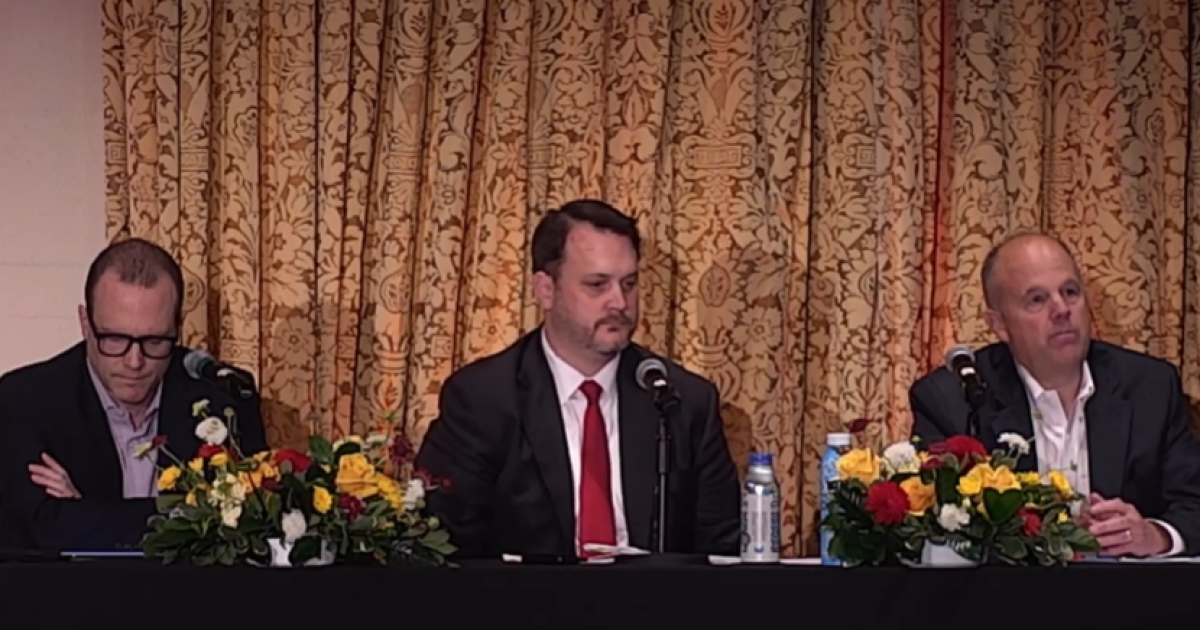KPMG US has set up a subsidiary that has filed an application in Arizona to establish a law firm in the state, with hopes of going national.
The subsidiary of the New York-based Big Four firm, known as KPMG Law US, filed an application with the Arizona Supreme Court to establish KPMG Law US as an “alternative business structure.” KPMG Law US will provide a set of integrated business solutions for legal teams, adding to the global capabilities of KPMG Law.
KPMG member firms around the world have been offering legal services for over a decade and are now in over 80 jurisdictions. In fiscal year 2024, the fastest-growing function across the KPMG global network was tax and legal services.
“KPMG Law US will be positioned to deliver innovative and quality services for legal teams, drawing on the KPMG network’s global experience as well as our technology capabilities and scale,” said a KPMG US spokesperson. “Legal teams navigate complex challenges with the support of traditional law firms. They also face substantial and wide-ranging process challenges that can benefit from legal expertise and technology at scale. We aim to solve those pain points, especially on tight timelines.This focused effort is a natural extension of our capabilities and will complement the services of traditional law firms.”
KPMG US already serves over 100 clients in Arizona, leveraging approximately 300 people across the firm’s audit, tax, advisory and business process group teams. Its presence has grown 35% since 2020 and supports the growth of the Arizona economy.
KPMG would be the first Big Four firm in the U.S. to operate a law firm, according to the Wall Street Journal. It’s leveraging a state program that began in 2021 ending a restriction on allowing non-lawyers to own law firms in an effort to alleviate the shortage of legal service providers.
“We have been studying Arizona’s structure for years, and we’re excited by the possibility that it presents to us,” said KPMG Tax principal Tom Greenaway, the designated principal on the application, during a January 14 court hearing. “We think the time is right now for us, given the advances that we have made in technology and the maturity of this market. We really think that we can bring innovation and a complete set of integrated legal solutions to our clients and to other clients here in Arizona.”
The firm aims to grow the law firm beyond Arizona once it has received approval from the state supreme court and expand to other parts of the country by leveraging Arizona’s laws and its alternative business structure,
“As an Arizona ABS, KPMG Law US would be able to practice law in the United States, subject to legal rules in its various jurisdictions, which is something that no Big Four network firm can currently do,” said the spokesperson. “Pending approval, this innovation would differentiate KPMG Law US both in the legal and the consulting markets. KPMG Law US would be able to bring legal capabilities to managed services, such as contract lifecycle management, among others.”
Partnering with firms in other states, KPMG Law US plans to serve clients nationally, including in Arizona. It has established relationships with law firms to support its legal teams. KPMG Law US intends to operate within each state’s ethics rules just like every other law firm. It will be able to co-counsel, refer or partner with separate staffing firms and other law firms, to expand services across jurisdictions, subject in all cases to legal and ethics rules in its various jurisdictions. KPMG pointed out that other ABS law firms operate this way and the model is also consistent with common practice among law firms. For decades, it noted, U.S. law firms, both small and large, have used co-counsel arrangements and staffing companies to provide coverage for their work across different jurisdictions.
“In order to do this job effectively, I need to be embedded within and working shoulder to shoulder proactively with the business,” said KPMG principal David Rizzo, a compliance lawyer for the ABS application, during the court hearing. “We are committed to running a tight ship and to standing on the right side of the law in Arizona, and in all other jurisdictions, backed by the support and resources of KPMG LLP.”
The firm plans to abide by all of the ethics rules surrounding such arrangements. “We will strive to set the bar for quality and ethics in legal services,” said the spokesperson. “KPMG Law US will be governed by the same high ethical standards that apply to other law firms and will build on our long-standing commitment to quality, ethics, independence and compliance with professional standards. We look forward to enhancing our multidisciplinary model and driving further innovation in the professional services industry, pending approval.”
KPMG Law US plans to offer legal managed services, global entity management, outbound legal project management support, and legal transformation solutions to legal teams. KPMG Law US will mainly deliver large-scale, process-driven work, such as volume contracting, remediation exercises, M&A-driven harmonization of contracts, and other legal managed services, leveraging its technology. KPMG has a cloud-based and generative AI-enabled Digital Gateway platform that serves as a “control tower” for a company’s set of tax and legal data, providing advanced analytics and reporting capabilities.
“Technology and process are something that we’re really good at,” said Greenaway at the hearing. “We’ve spent a decade or more investing massive sums of money in building our technology platform and solutions. Our firm has a proprietary Digital Gateway platform that we are going to deploy across these business law problems that emerge. We think we can provide a more efficient set of solutions than a lot of existing providers.”


 Personal Finance1 week ago
Personal Finance1 week ago
 Economics1 week ago
Economics1 week ago
 Economics5 days ago
Economics5 days ago
 Economics1 week ago
Economics1 week ago
 Economics5 days ago
Economics5 days ago
 Economics5 days ago
Economics5 days ago
 Economics4 days ago
Economics4 days ago
 Finance5 days ago
Finance5 days ago












